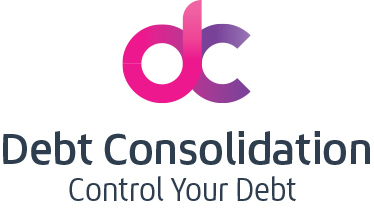Raising a child on your own is hard enough, but when you’re doing it while struggling financially, the difficulty rises to a new level. Yet, millions of parents around the world navigate the challenging world of parenthood while smoothing their financial journey. Read on and find out how you can do it too.
Request for your latest credit report
A credit report is a summary of your credit transactions. This is particularly helpful to single moms who lost track of their receipts and latest billing statements. If you have installment loans like car loans, mortgage and payday loans- you will see if you have paid the required monthly payments each month for a certain period until the loan is fully paid. The whole monthly payment history for your all credit accounts for the past 2 years will also appear on your credit file. And if you forgot where you applied for credit and loan these past 24 months you can take a look at the inquiries section. For those who are wondering why banks are no longer calling them or sending payment reminders, you may check your credit report for collection accounts. When your lenders send your unpaid debts to collection agencies, they usually end up on your credit file. But, there are also times when unpaid bills are not reported to the credit reporting agencies.
Credit report also provides detailed information about your revolving accounts or the credit lines that you borrow from repeatedly without the need of reapplying for a new line of credit. These include line of credit and credit cards. You can see your balance which depends entirely on the purchases charged and payments made.
You can also check if there are negative listings on your file, such as foreclosures, bankruptcy and repossession or other similar records. You can dispute erroneous or in accurate listings by writing to the credit reporting bureaus and your lender.
Compute your net income
If you like to know how much you can spend each month, calculate your net income to find out.
The first step is to find out your gross income or the total amount of money you make each year. If you don’t work on stable hours, simply get the average amount you make each month and multiply them by 12 months. Next, subtract all deductions you have like taxes, social security, medical insurance and employer-based retirement contributions, if applicable. If you’re running a business, subtract all business-related expenses, such as rent, utility, supplies and other necessary expenses.
Create a personal budget worksheet
In the first column, write down your income, which includes your salary or business net income, public assistance, food stamps, if applicable. On the second column, record your monthly expenses such as mortgage or rent, electric, water, heating and gas bills, telephone, cable, household repairs and other housing or living expenses. Enter the regular payments you make each month, like credit cards, child care, life, health and home insurance, student loan, and other loan payments on the third column. Create three separate columns for your food expenses, transportation, and personal expenses like personal care, doctors, dentists, prescriptions, hair/nail care. You can also include clothing or shoes, laundry or dry clean and recreation or travel on your personal expenses list. Reserve another column for your miscellaneous expenses like church, charity and most of all savings. Subtract your total expenses from your total income. If your monthly expenses are higher than your earnings, it means you don’t have enough money for your household budget.
Watch out for signs of too much debt
Aside from not having enough money to cover your monthly budget, here are other signs of too much debt.
- Creditors are reminding you of missed payments
- You spend 50% or more of your income to pay for personal loans, credit cards, medical bills, utility bills and other consumer debts.
- You used up more than 80% of your credit limit. The ideal utilization rate is 30%. If you maxed out your card, that means you’re in financial trouble
- Your money is just enough to make minimum payments on your credit card bills each month
- You have zero savings in your bank account. You don’t have an emergency fund.
- Your recent loan application have been rejected because of bad credit history or low credit score
- You open new credit accounts to pay for your high-interest credit cards
Apply for low-interest, and fast-approval debt consolidation loan
Consolidating your debts is a smart move if you keep on adding debt each month and you live from paycheck to paycheck. Having a zero net worth, pestering bill collectors also make it worst. When you’re at this stage consider turning to us for help. There’s no need to feel desperate. Our debt consolidation loans can help you manage your debt, by rolling them into one low-interest, easy to pay debt consolidation loan that would help you get back on your track and start anew.
For more debt consolidation tips, contact our in-house loan specialists today!

